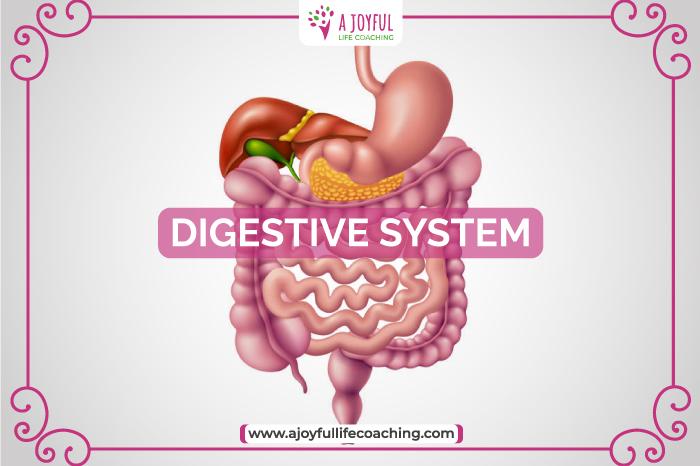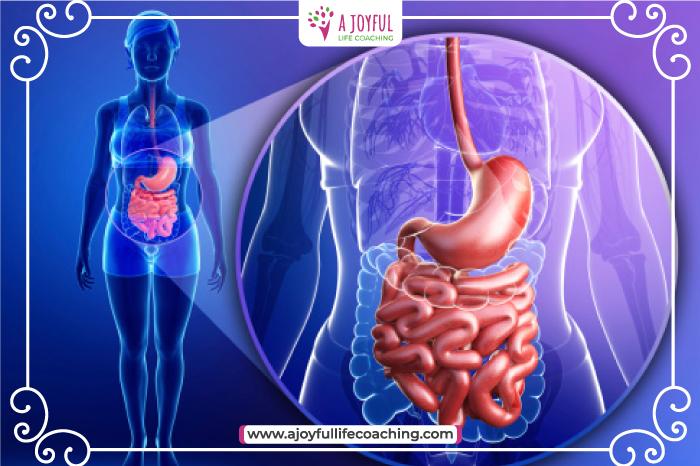Signs of Unhealthy Gut we Should Take Them Seriously. An unhealthy gut can cause many problems and bring additional issues that weren’t there before. So if you are having health issues, chances are, there is a link between that and your gut health in some way. Maybe it is the way your current lifestyle or your unchecked dietary or other factors you do not yet know about. But if you keep it unchecked, it will only get worse.
If you could see me now, you would not believe that I was a victim of an unhealthy gut myself. Bloating, constipation, heartburn, constipation, loose stools, and gas problems were ruining my daily lifestyle, until I sought help and completely changed my ways of living and eating. And now, I am going to change yours.
This article is an all-in-one solution for all your questions about poor gut health and will help you find what signs to look out for in an unhealthy gut, what may cause gut health issues, and how to treat them naturally.
So What is an Unhealthy Gut?

First of all, the basics. Gut health can be thought of as the balance of bacteria in the digestive tract. Many people also call this part of their body their “Digestive System”. Yes, that part of your body. Your digestive system comprises a lot of different parts that work together to process and absorb the nutrients in your food. You can find out more about it in this article that I wrote.
When you eat, your body gets the nutrients it needs from the food you eat through the digestive system or the gastrointestinal (G.I.) system. When all of our digestive organs work together, we should be able to eat and digest food with no problems at all.
Well, this isn’t true for the estimated 66.4 million people in the US who had ambulatory care visits to doctors and hospitals due to digestive problems, says a recent study, as of January 2022, from the National Institutes of Health.
What Causes Unhealthy Gut?

Over 100 trillion bacteria make up your gut microbiome and I am not even making this up. We will talk about how the microbiome works and how it affects our overall body later. But what exactly are they doing there?
Well, those bacteria perform a wide range of critical functions for our bodies and overall health. The bacteria consume dietary fiber while performing a variety of tasks, including the production of vitamins B and K and the breakdown of dietary fiber. This process results in the production of beneficial, anti-inflammatory fatty acids, which are key sources of energy for our systems and aid in our overall health.
You must have a healthy gut in order to maintain a healthy body. Dietary and lifestyle variables, such as poor sleep quality, excessive alcohol intake, and inactivity, might negatively impact your gut flora balance and can be the major culprit of your unhealthy gut in the end.
So, in order to avoid mood disorders, gas issues, bloating, constipation, diarrhea, and irritable bowel movement, you must pay attention to what you eat and regulate your gut health.
Signs of Unhealthy Gut
Now addressing the elephant in the room, the important indications of poor gut health that you can identify with your naked eye and without a medical license. A healthy gut microbiota may be achieved by a variety of healthy lifestyle practices, such as eating a balanced diet and exercising regularly. You will want to keep an eye out for these 15 signs for gut related problems –
- Bloating –
In our bodies, gas is a typical byproduct of fermentation and digestion. It is possible to suffer from bloating, gas and constipation, diarrhea and heartburn as a result of an abundance of dangerous bacteria in your digestive tract. Your stomach will stretch when you have trapped gas, and you will feel relatively unpleasant as a result of this condition.
- Constipation –
People who have constipation usually have a low level of gut bacteria, which can make it hard to digest food and cause constipation. Bifidobacteria are good bacteria in your body. If you have constipation, you may not have enough of them in your body.
- Diarrhea –
You may even get worse gut health if you have diarrhea. This is because diarrhea may cause the good bacteria in your gut to flow out of your body, which will make your gut even more messed up. Clostridioides Difficile is a type of bacteria that lives in your gut, and it’s not dangerous in small amounts. The problem is that when it grows, you will get diarrhea and get sick. As soon as you have an upset stomach, your body tends to push out good bacteria.
- Inability to Focus –
Your gut makes neurotransmitters, which can change how you think and how well you can focus. If you can’t focus, it’s time to look at what you eat.
- Mental Issues –
Some mental illnesses, like anxiety and depression, can be caused by an imbalance of the gut microbiota and inflammation of the gut. This can show up in your mood if your gut bacteria aren’t in the right proportions. If you have a leaky gut, your body may not make enough of the “happy” chemicals serotonin and dopamine, which can make you feel depressed. For this reason, treating a problem with the way your body works is very important for your mental health.
- Skin Acne –
Many experts believe that having a bad gut makes your skin look bad. Skin problems like eczema may be caused by bad gut health. There may be more “leaking” of certain proteins into the body when there is inflammation in the gut because of a poor diet or food allergies.
- Tiredness and Sleep Disorder –
Another sign that you have a stomach problem is that you feel tired all the time, no matter what you’ve been doing. While serotonin is made in the brain, most of it is produced in the intestines. If your stomach isn’t working properly, you may find yourself waking up tired every day due to a shortage of serotonin in the body.
- Autoimmune Disease –
People who have a bad gut may get autoimmune diseases. If you have an autoimmune disorder, your own body attacks itself. A study found the bacteria Enterococcus gallinarum and found that when it grows, it can cause autoimmune diseases.
- Obesity –
A high-fat, refined-carbohydrate Western diet may boost gut flora linked to obesity, according to Nutrition Today (2016). An unstable gastrointestinal tract may hinder nutrition absorption, blood sugar management, and fat accumulation. Insulin resistance or poor nutrient absorption may cause weight loss due to bacterial overgrowth in the small intestine.
- Bad Breath –
A build-up of bacteria in your mouth normally causes bad breath, but if it persists even after brushing, it might be an indication that your gut bacteria isn’t ideal. If your tongue has a thick layer on it, this also means your digestive system isn’t working well.
- Allergies –
Another study published in Frontiers in Microbiology in July 2018 suggests that an unhealthy gut may contribute to allergies, including respiratory, food, and skin allergies. As a result, the microbiome may influence nutrition, skin, and lungs. Allergies have risen sharply in recent decades as humans have settled into urban surroundings.
- Migraines and Sinuses –
The gut microbiome is made up of bacteria that dwell in our gut and nourish us. A healthy and diversified gut microbiome is linked to reduced migraine and sinus symptoms, new study shows. The gut-brain connection may also affect migraines, but the link is unclear. The analysis showed a relationship between migraines and other gut-related diseases including IBS.
- Respiratory Diseases –
A bacterial imbalance in the stomach may induce asthma. This imbalance can cause tissue inflammation and other health concerns. A superfood like turmeric might help reduce inflammation.
- High Cholesterol –
Gut microorganisms are important for heart health, according to Live Science! A healthy BMI and cholesterol are controlled by gut bacteria. Adding omega-3 fatty acid-rich items to your diet will improve your gut’s beneficial flora.
- Weakened Immune System –
If you always get whatever sickness is circulating around the office or town, your stomach is probably out of balance. Did you know that your GI tract contains 75% of your immune system? It’s only logical that a poor immune system would accompany gut disease.
I will go through a few of these crucial warning signs right now so you’ll know what to look for and how to handle them when you do.
Unhealthy Gut Microbiome

The bacteria, archaea, viruses, and eukaryotic microorganisms that make up the human microbiome may be found in and on our bodies. These bacteria have the potential to have a significant influence on human health and illness in both positive and negative ways.
For example, they have a role in metabolism and immune system education and can impact most of our physiologic systems through these fundamental roles. You have trillions of bacteria, fungi and other microorganisms in your digestive system. By regulating digestion and boosting your immune system, the microbiome in your digestive tract plays a critical role in your overall well-being. Weight gain, excessive blood sugar, high cholesterol, and other health problems can be caused by an unbalanced microbial population in the intestines. Fermented foods and a broad range of fruits and vegetables are good for your gut microorganisms, so consume a lot of them.
Unhealthy Gut and Anxiety

It’s becoming increasingly clear to doctors that digestive and intestinal problems are linked to symptoms of anxiety, depression, and mood swings. Several hormones and chemicals are released by the body when you are worried or stressed, and they enter the digestive tract. Antibody production can be reduced by affecting the bacteria that exist in your digestive system. Pathogens, foreign toxins from food, and undigested particles can enter your circulation if they can break through the gut membrane. Besides disrupting your sleep and reducing your body’s capacity to absorb nutrients, a leaky gut can put additional strain on your mind and body, resulting in anxiety and panic attacks.
Sometimes I suffered from incomprehensible and scary panic attacks; I held onto irrational emotions; and I held back in various aspects of my life because of irrational ideas. It was only lately that I discovered that the source of most my worry was caused by previously undiscovered digestive issues. So trust me when I say that it is never late to seek help when you need it. Also, you can visit this blog to learn more about how stress and depression costs our life force.
Unhealthy Gut and Hair Loss

Hair is made up of protein, lipids, and other trace elements. Hair growth requires a lot of energy, as well as hormones, minerals, and vitamins. Hair loss can occur if the body lacks the ingredients required for this complex process of hair production.
Digestion gives your body all the nourishment it needs to function correctly. Everything you eat ultimately enters your system. As soon as it reaches your stomach, enzymes and gut bacteria break it down into simple components that are absorbed and transferred to various regions of your body for further processing or direct usage. As a result, digestive disorders might cause inadvertent hair loss.
According to current evidence, gut microbes and hair loss are connected. Boosting gut health may help Alopecia areata patients grow hair faster.
Probiotic-rich fermented foods like sauerkraut, kimchi, and kanji help colonize the stomach with good bacteria. Making the necessary dietary and lifestyle changes can improve your hair as well as your complete body.
Unhealthy Gut and Bad Breath

Halitosis, or bad breath, can be caused by poor oral hygiene, but it can also be an indication of more serious health issues. The digestive system may be the source of the problem.
In addition to the mouth, the esophagus, stomach, small and large intestines are all parts of the digestive system and can all contribute to bad breath. The microbiome’s job is to operate as a protective shield for the gastrointestinal tract from the rest of the body. It breaks down, develops holes, and loses its effectiveness as a barrier when this barrier is weakened. Gluten, nasty bacteria and undigested food particles are just a few of the potentially dangerous items that might “leak” through. As a result, these irritants and inflammatory substances are released into the bloodstream, where they cause severe damage to your health.
There are many ways to get rid of bad breath, because there are so many over-the-counter products. If your dental hygiene is already excellent, you might prefer something you can manufacture yourself. Consider making a warm water mouthwash with a few drops of salt or apple cider vinegar. Tea tree oil may be used as a toothpaste. Suck on a clove, which has both antimicrobial and fresh-smelling characteristics.
However, if your bad breath persists, see a doctor to rule out more severe problems.
Unhealthy Gut and Skin Problems

Our behavior may be affected by bacteria, which is why it is sometimes referred to as our second brain.
When it comes to skin health, the bacteria in your intestines, or gut microbiome, has a significant impact. The look of your skin, including spots, inflammation, eczema and rosacea, may be affected if you have an unhealthy stomach. Digestive imbalance may lead to skin-aggravating disease, according to an expert gastroenterologist. This is because the stomach is overrun with nasty bacteria when the digestive system is out of sync. These signs can indicate an imbalance in your stomach, such as rashes and/or breakouts, redness and/or dryness of the skin and/or the appearance of skin that seems haggard or ages more quickly.
It is critical to get your gut health in order before focusing on skin-supporting nutrients like vitamins A, C, E, K2, B3, B5, selenium, zinc, silica, and sulfur, as well as omega-3 fats and oils, because what you absorb is more important than what you put into your body. This is why a healthy gut is a top priority.
Unhealthy Gut Treatment

To help you with your digestive health, I’ve put together some of my favorite natural ways to heal your gut. There have been a lot of studies done on this, as well as my own personal journey to better gut health.
- Prebiotics
- Probiotics
- Drink Water
- Fiber-rich foods
- Exercise
- No Alcohol
- Reduce Stress
- No Dairy or Sugar
- Sleep Well
- Visit Your Doctor
I discussed these natural remedies in this article here. Check it out to learn more.
Unhealthy Gut and Exercise

Continuous physical activity enhances our intestinal health, which in turn boosts our immune system, which helps to keep us healthy. One of the most important benefits of engaging in daily physical activity is that it helps us maintain our regularity. When we exercise, our intestines naturally contract, allowing waste to flow through our system more quickly. It is critical to maintain the proper functioning of the digestive system on a regular basis, and exercise definitely plays a significant part in this. Check this article to see how regular walking may change your life.
Getting our body pumped up may be accomplished through cardiovascular training, stretching, yoga, and weightlifting, among other activities. Recent research discovered that individuals who adhered to a consistent exercise plan had an improvement in the number of beneficial bacteria in their stomach after only six weeks of participation. After another six weeks of sedentary activity, the researchers discovered that the stomach had returned to its pre-testing state as well. Here is an example of how effective exercise can be—and perhaps more crucially, how soon the beneficial (and bad) consequences of exercise may manifest themselves in our bodies.
Daily physical exercise of at least 30 minutes is recommended.
Bottom Line
Always remember that you won’t be healthy if your gut isn’t healthy. You will be surprised how sometimes we actually harm our gut health instead of nurturing it. So it is high time we step back and think hard about our lifestyle choices. Like always, take care and be happy.
Daily physical exercise of at least 30 minutes is recommended.
If you’d like further support please contact me here.



